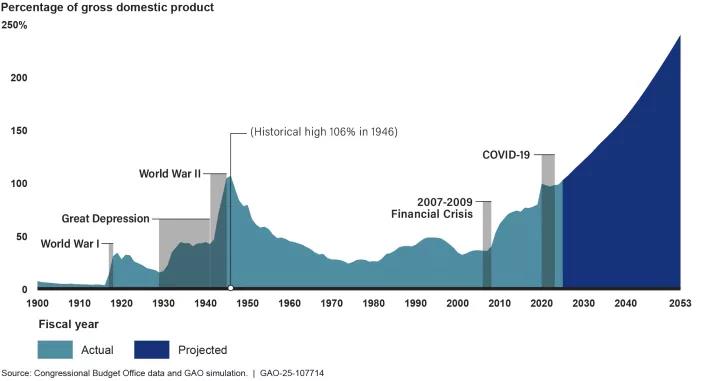What You Need to Know: Government Shutdown 2025
As of Wednesday, October 1, 2025, at 12:01 AM, the federal government shut down for the first time in seven years. The primary reason for the stall is a breakdown in negotiations over the latest government funding bill. The key issue is the disposition of the Affordable Care Act (ACA) enhanced premium tax credits. Earlier this year, the One Big Beautiful Bill Act made major changes to federal spending, but it did not extend enhanced premium tax credits that were introduced in late 2021. The impact on dentists in the short term will likely be minimal, but decisions made over the next several days to weeks may have larger impacts for years to come.
Regardless of the final result of Congress’s negotiations, it will have major effects. The credits at issue subsidize the purchase of health insurance in the ACA marketplace, and they are projected to potentially save enrollees an average of just over $1,000 over the year in 2026. In response to a loss of the credits, up to 4.2 million more people could be uninsured by 2034. Meanwhile, extending the credits would raise the deficit by $335 billion by 2035, and it would increase net interest outlays over that period by an additional $48 billion.
Why Do Federal Shutdowns Happen?
The United States has a debt limit that places a statutory constraint on how much money the Treasury may borrow to fund government operations. Debt rises when expenditures exceed tax receipts, a common occurrence within the last fifty years, with only four years seeing surpluses. Deficit spending since the early 2000s has been a point of contention in political battles over the past several decades, but shutdowns are still relatively rare. Congress raised, extended, or revised the debt limit 78 times since 1960. On occasion, negotiations over the federal budget break down, leading to a temporary halt in certain government activities.

How Long is the Typical Government Shutdown?
Since the 1980s, there have been 15 government shutdowns, counting the ongoing one, ranging between 1 and 35 days in length. The average is 7 days; however, this average is skewed by 8 very short, 1-3 day, pauses during Ronald Reagan’s presidency. The average after 1990 is closer to 16 days. It is possible budget negotiations could drag on for up to a month, but things could also be back to normal by tomorrow.
What Will Actually Shut Down?
Despite the shutdown, essential government services will continue. Social Security payments will go out, and work at the Centers for Medicare and Medicaid Services (CMS) will not stop. Medicaid has been adequately funded through the first quarter of FFY 2026, which began on October 1, 2025. Agencies have made plans to limit non-essential activities. For example, CMS will be pausing health care facility survey/verification, policy/rulemaking, contract oversight, and outreach/education. Staff may be furloughed as the shutdown continues.
How Does This Impact Georgia Dentists?
Federal shutdowns are typically expected to have limited impact on dental offices. Healthcare spending is considered essential, and plans are typically put in place to ensure Medicare, Medicaid, and VA beneficiaries receive their care. Shutdowns are most likely to impact sites with more exposure to federal programs such as safety-net clinics.
On the other hand, the outcome of the budget negotiations that caused the shutdown could have longer term consequences for dentists. Policy decisions that impact household financial income could potentially impact overall demand for dental care, and general economic factors also play a role in the health of any dental practice.
The American Dental Association Health Policy Institute’s Third-Quarter 2025 report found that consumer dental spending is slightly up, but that appointment wait times are down, correlating with declines in dentist “busyness.” Economic confidence is stable, but dentists are continuing to experience a fiscal squeeze, with insurance reimbursements declining and expenses rising after adjusting for inflation. Over a quarter of dentists have dropped out of at least some insurance networks since the beginning of the year and two-thirds have increased their fees in response.
Getting Involved
Advocacy at the federal and state level steers public policy. To get involved with GDA advocacy work, sign up to be a contact dentist, consider giving to GDAPAC, and attend local advocacy events like upcoming legislative receptions. The work of contact dentists is especially important. They develop relationships with legislators to ensure that a dentist’s perspective on matters that affect providers, and their patients, is always available. The American Dental Association coordinates advocacy efforts at the federal level, and it provides several opportunities to get involved.

